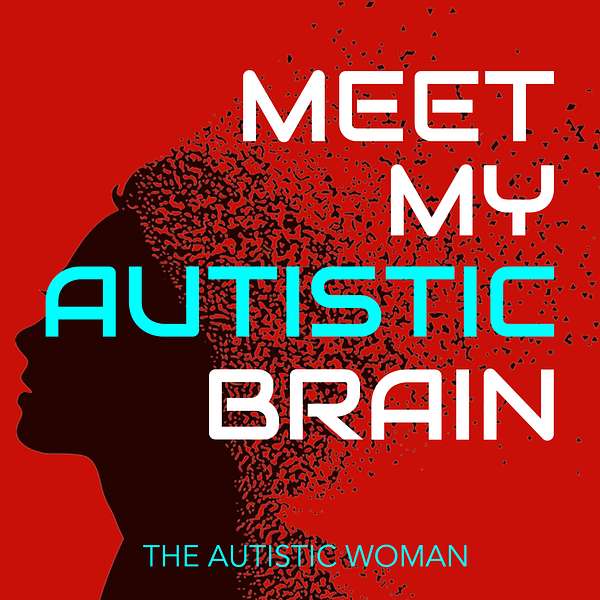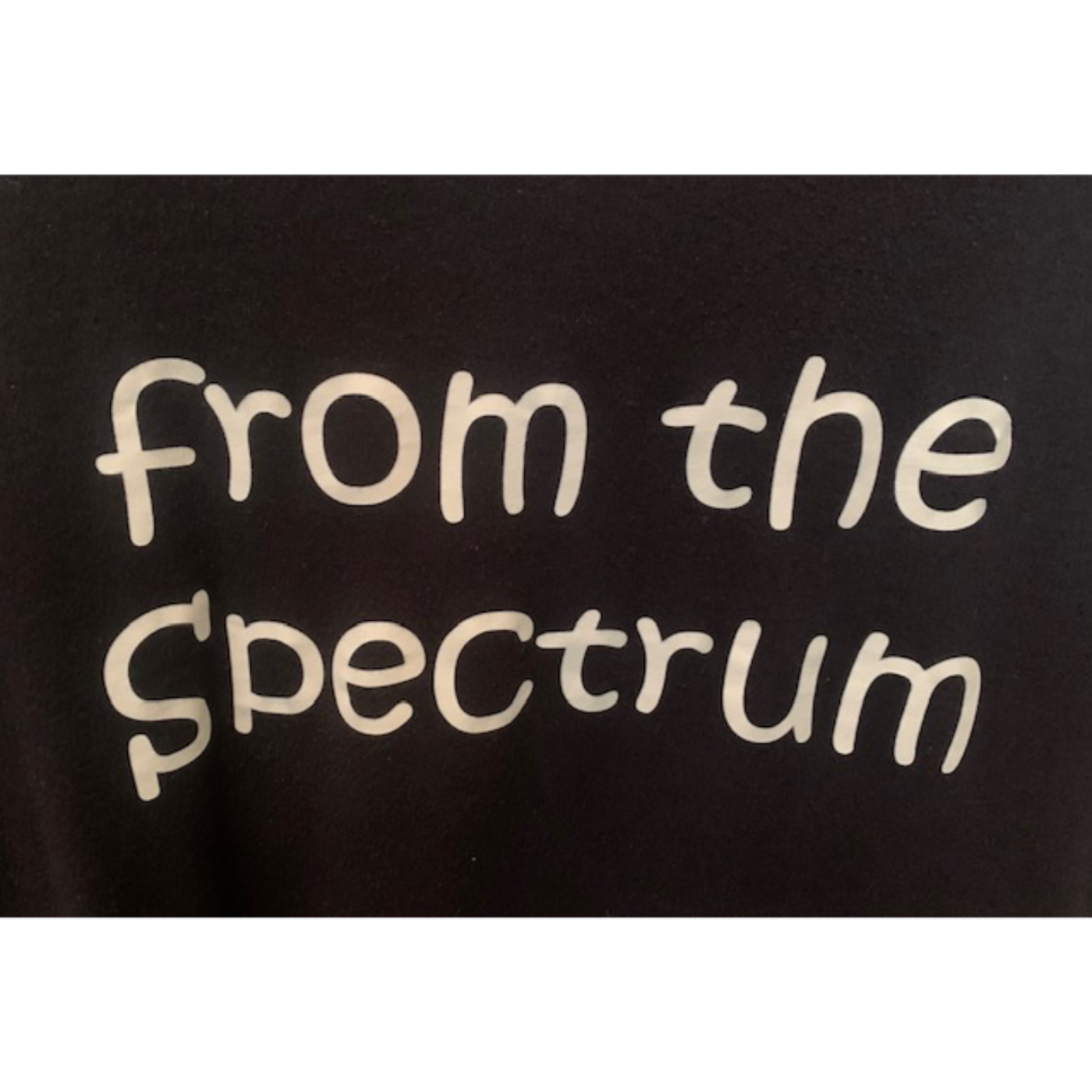
Meet My Autistic Brain
What is it like to find out late in life that you are autistic? The Autistic Woman talks about life experiences and how autistic traits affect her as an adult. You'll hear personal stories, opinions about research and the importance of autistic voices. Includes some fun stuff too and interviews of autistic guests! This podcast is primarily for adult autistics and their family and friends. It's one of the top 0.5% most popular shows globally as ranked by Listen Score with more than 1,000,000 downloads.
Meet My Autistic Brain
Echolalia and Repeating Words
Use Left/Right to seek, Home/End to jump to start or end. Hold shift to jump forward or backward.
Echolalia and Repeating Words. It can be a sign of autism or something else. Echolalia might be just a way to learn language. Sound familiar?
Please take a moment and rate/review the podcast. It takes seconds to rate it and just a minute to review it. By doing so you help make this content available to more autistics.
Twitter: @anautisticwoman
Email: info@theautisticwoman.com
Website: theautisticwoman.com
Linktree: https://linktr.ee/theautisticwoman
PayPal: info@theautisticwoman.com
This is a great autism resource for late-diagnosed autistic adults. Now rated in the top 2% globally!
I appreciate autistic voices. Here are some other shows you might enjoy:
Adult with Autism https://www.youtube.com/c/AdultwithAutism
Neurodivergent Rebel https://www.youtube.com/c/NeurodivergentRebel
Autistamatic https://www.youtube.com/c/Autistamatic
Woodshed Theory https://www.youtube.com/c/WoodshedTheory
Autism from the Inside https://www.youtube.com/c/AspergersfromtheInside
Atypical: The Podcast https://podcasts.apple.com/us/podcast/atypical-the-podcast/id1616707343
Thought Auti https://podcasts.apple.com/us/podcast/thoughty-auti-the-autism-mental-health-podcast/id1470689079
RATED IN THE TOP 0.5% GLOBALLY with more than 1,000,000 downloads!
If you are an autistic person who has written a book about autism or if you have a guest suggestion email me at info@theautisticwoman.com.
Instagram
Ko-fi, PayPal, Patreon
Linktree
Email: info@theautisticwoman.com
Website
June 24-28, 2026 In Rewilding Together
Echolalia and Repeating Words
Welcome to Meet My Brain - A Field Guide to Autism. I’m your host, The Autistic Woman.
I recently saw a cartoon where a person asked a dog what it was called and it replied “My name is no-no bad dog, what’s yours?” Although it’s a joke it shows that sometimes word repetition lacks meaning or is misunderstood.
Listen to this episode about word and phrase repetition which is sometimes called echolalia.
Echolalia is the repetition or echoing of words or sounds. The speaker may or may not understand the meaning of the words. They may be processing the sound. It’s said to be a defining symptom of autism.
It’s considered to be a normal part of language development up until about age 2 1/2 to 3. Children learn inflection as well as words and copy or imitate what they hear as they learn to talk.
Children don’t always understand the words they imitate. I know of a 2 year old child who could sing a rather sophisticated song by memory but didn’t really know what it was about.
Some scientists say that an autistic person’s use of echolalia beyond 3 years of age is abnormal while others say it’s just a different way to develop language skills.
Besides autism there are a variety of causes of echolalia including Tourettes, visual impairment, schizophrenia, head injury or trauma, stroke, dementia and others.
To test for it a therapist observes, listens to the person talk and gets to know their personality and habits. There are treatments for children whose echolalia interferes with life or communication or causes anxiety and stress.
I’ve read relationship advice that says in order to connect with others you should repeat the last 3 words of the sentence they just spoke. Doing so can help the other person feel like they’re being heard.
How is that different from echolalia? I’m not sure if it’s called echolalia if it’s a conscious decision to repeat another person’s words. Psychologists maintain that repeating words that someone just said is a classic autism sign.
I’ve nearly always heard phrases in films and television that I particularly like. It might be due to their cleverness, the way the words are phrased, the knowledge required to say the words, such as quoting something from history or a quote from a poem or simply a choice of words.
One word that is popular and probably overused right now is sycophant. I certainly hear it repeated often. It’s an example of using a sophisticated word to describe something relatively simple. If it’s said over and over a word becomes common and may even lose its original meaning.
I try to learn words and phrases so I can use them at an opportune moment. I want to feel sophisticated. Not out of ego. It’s because it felt “amazing”, (a word I use a lot), when I first heard it.
I’ve been hearing Brits use the word “brilliant” which to me is more expressive than amazing because the latter tends to be overused in the US. Lately I’m saying “brilliant” more often.
When I was a child I didn’t repeat words, phrases or questions. My speech was not delayed.
I don’t always realize I’m repeating words I just heard until afterwards. It may not be intentional. I know I have deficits with short-term memory. I’m hoping that repetition will make the information stick.
From my experience echolalia can serve two functions. One is an immediate type of echolalia for information processing to understand the meaning or significance of the words.
The other is a delayed echolalia which is the repeating of things from films, books or conversations.
It seems to happen more frequently as I get older. I sometimes repeat a word to myself after I hear it in a movie. I picture a future conversation where I would use the same inflection and pronunciation.
As autistics many of us repeat song lyrics and when asked we say that we “are trying to learn the words.” I have to repeat a song many times before I can memorize it. When repeating words feels good it might be stimming. Is this echolalia?
Repeating phrases can be a normal part of adult speech that doesn’t rise to the level of echolalia. In the US we say “hi how are you?” and answer “Fine. How are you?” automatically and without thinking. It doesn’t really have meaning. Just like “have a nice day.”
One listener told me that in his country if someone asks how you are they genuinely want to know. There are cultural differences.
What about positive affirmations? Are they a form of echolalia? Are autistics more drawn to them than non-autistics?
Affirmations cause our brains to focus on something positive. It’s believed that if we repeat them enough times we can change our attitude. Some say we might draw more positive experiences into our lives.
There are many questions about how echolalia is explained and defined. The focus of research has been on children and the relationship to language development.
I can see that echolalia is a trait in some autistics. Why it’s pathologized is unclear. It seems to me it’s just another way we can learn and enjoy language.
Don’t hesitate to contact me. I’m on Twitter at @anautisticwoman or you can email me at
You can support the podcast by subscribing, liking, tweeting, rating, reviewing, telling your friends and becoming a patron on Patreon. I’ll put links in the show notes. Thank you for listening.
This has been Meet My Brain - A Field Guide to Autism, I’m the Autistic Woman. Slava Ukraine!
Podcasts we love
Check out these other fine podcasts recommended by us, not an algorithm.

Atypical: The Podcast
The Atypical Crew

